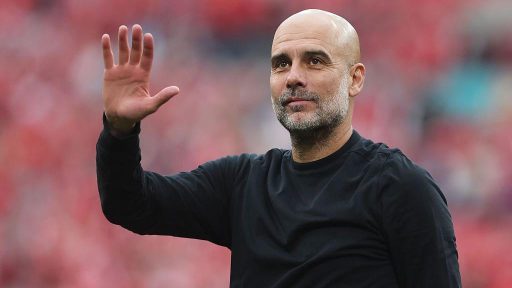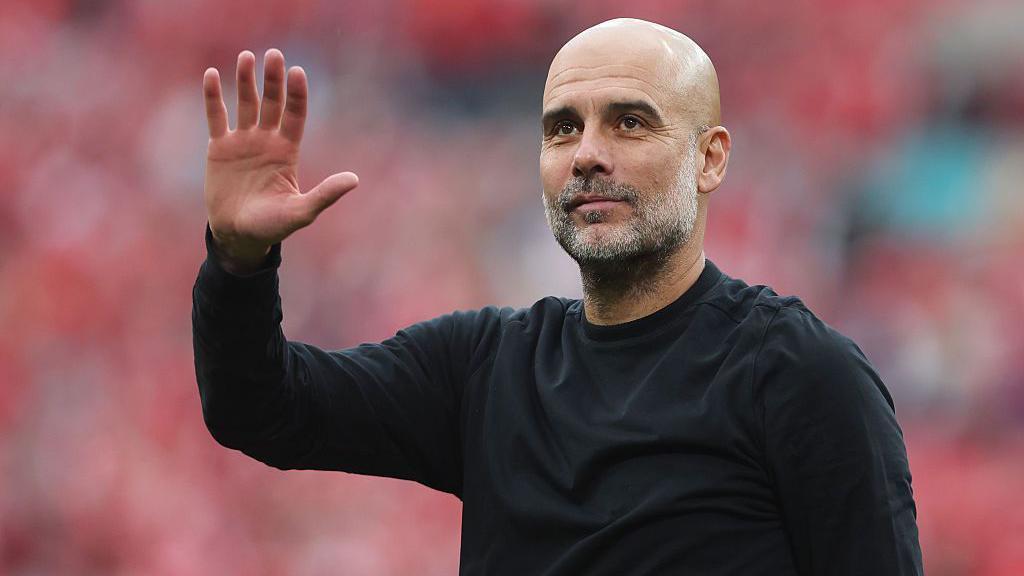Instant Access
No Waiting, Start Streaming Now
24/7 Support
Always Here to Help
Multi-Device
Watch on Any Screen
8K Quality
Crystal Clear Streaming


Instant Access
No Waiting, Start Streaming Now
24/7 Support
Always Here to Help
Multi-Device
Watch on Any Screen
8K Quality
Crystal Clear Streaming
In the ever-evolving world of English football, few voices resonate as clearly as that of pep Guardiola. The Manchester City manager, known for his tactical brilliance and his passion for the game, now finds himself at the crossroads of yet another heated debate: the scheduling of Premier League fixtures. With nearly a decade of high-stakes competition behind him, Guardiola has expressed his frustration over the relentless pacing of the leagueS calendar, making it increasingly challenging for teams to maintain peak performance. As the Premier League continues to grapple with the pressures of broadcasting demands, fan engagement, and player welfare, Pep’s candid critique sheds light on the broader implications of fixture congestion. In this article,we delve into Guardiola’s thoughts on the matter and explore how his longstanding battle with scheduling could reshape the future of one of the world’s most beloved leagues.
Pep Guardiola, Manchester City’s esteemed manager, has once again voiced concerns over what he perceives as the relentless Premier League scheduling that leaves players fatigued and underprepared. Speaking with evident frustration, Guardiola highlighted the challenges of balancing an intense domestic league with numerous cup competitions and European fixtures. The Spaniard lamented the lack of recovery time for squads, especially during congested periods like the festive season or after international breaks. His long-standing calls for fairer scheduling adjustments appear to have gained little traction, fueling sentiments of exasperation. He emphasized that such decisions not only affect tactical preparations but also increase the risk of injuries to already overworked athletes.
In Guardiola’s nine-year tenure in English football, he has had to adapt to a notoriously unforgiving calendar, frequently enough questioning whether player welfare is being prioritized. The manager listed several inconvenience points that need attention:
To illustrate this issue, Guardiola referenced specific scenarios from previous seasons:
| Season | Matches in 10 Days | players Injured |
|---|---|---|
| 2020/21 | 4 | 5 |
| 2022/23 | 5 | 3 |
Guardiola’s frustration is shared by many managers in the league, but the balance between entertainment for fans and health for players remains a contentious debate, leaving questions about when—or if—changes will ever be made.
Manchester City, under the stewardship of Pep Guardiola, has faced one of football’s most relentless fixture schedules. The constant barrage of matches across multiple competitions—Premier league, Champions League, domestic cups, and even pre-season tours—has stretched the squad to its limits. Fatigue, injury risks, and diminishing player performance make fixture congestion more than just a logistical problem; it’s a silent adversary within the lovely game. Even with a well-equipped squad, guardiola has repeatedly voiced his frustration, questioning whether this cycle sacrifices quality football on the altar of commercial interests.
To put things into viewpoint, consider Manchester City’s calendar from just one intense run:
| Match | Date | Gap Between Games |
|---|---|---|
| Premier League vs Arsenal | Saturday | 3 Days |
| Champions League Quarter-Final | Tuesday | 4 Days |
| FA Cup Semi-Final | Sunday | 2 Days |
Such tight turnarounds leave little room for recovery, training, or tactical adjustments. Even the freshness of Guardiola’s ideology can struggle to shine when the rules of the game are dictated by the clock, not by the ball.
Pep Guardiola, known for spearheading some of football’s most innovative tactical revolutions, has once again raised an issue that cuts beyond the pitch: the relentless match scheduling in English football. His deep concern lies not just with the lack of rest days, but with its long-term impact on players’ physical and mental well-being. “We’ve been discussing this for years, but nothing changes,” Guardiola stated recently, calling out the authorities on what he perceives as a glaring indifference. Imagine a 72-hour turnaround between high-stakes fixtures—this is not a drill but a reality for many clubs navigating the congested calendar.
He further highlighted key sticking points that intensify these challenges:
To emphasize his frustration,guardiola compared fixture congestion across leagues:
| League | Days Between Matches |
|---|---|
| Premier League | 2-3 days |
| La Liga | 5 days |
| Bundesliga | 6 days |
guardiola has repeatedly called for reforms—be it allowing five substitutes permanently or rethinking scheduling—but his warnings frequently enough seem to fall on deaf ears. The question remains: how can football evolve without breaking its stars?
the Premier League’s scheduling complexity has long been a contentious topic among managers, players, and fans alike. Addressing these issues requires both innovative thinking and collaborative action. A key solution could involve the introduction of protected rest periods—mandatory windows without fixtures—especially following international matches or congested tournament cycles. Such measures would not only ensure player welfare but also improve the quality of football by reducing fatigue-induced errors and injuries. Footballing authorities could additionally explore greater integration of data analytics to identify optimal fixture timings,balancing TV broadcast priorities with team recovery times.
Another approach could include adopting flexible fixture frameworks, similar to those successfully implemented in other sports leagues. This might involve encouraging dynamic scheduling models that prioritize high-stakes games while allocating more manageable slots for less prominent matchups. For transparency and fairness,collaborative committees representing clubs,players,and governing bodies could oversee these scheduling decisions. Below, we propose a hypothetical solution that reflects these considerations:
| Action | Benefit |
|---|---|
| Introduce mid-season breaks | Reduces fatigue; aligns with global leagues |
| Utilize post-match recovery windows | Improves player health and performance |
| Enhance scheduling transparency | Builds trust among clubs and fans |
As Pep Guardiola’s exasperation with premier League scheduling echoes through the airwaves, it serves as a stark reminder of the ongoing battle between ambition and practicality within the realm of football. Nine years of advocating for a fairer approach highlight not just the complexities of a demanding league but the broader implications for player welfare and sporting integrity. As we move forward, it raises an essential question: will the powers that be listen to the voices of those who strive for excellence, or will this just be another footnote in the saga of the beautiful game? With the season still unfolding, all eyes will be on the decision-makers who hold the fate of this enduring issue in their hands. Only time will tell if change is on the horizon.
34,353
Live TV Channels
162,404
Movies
27,802
Series
284,023
Total Subscriptions
139,854
Users Online
142,887
Total Resellers

